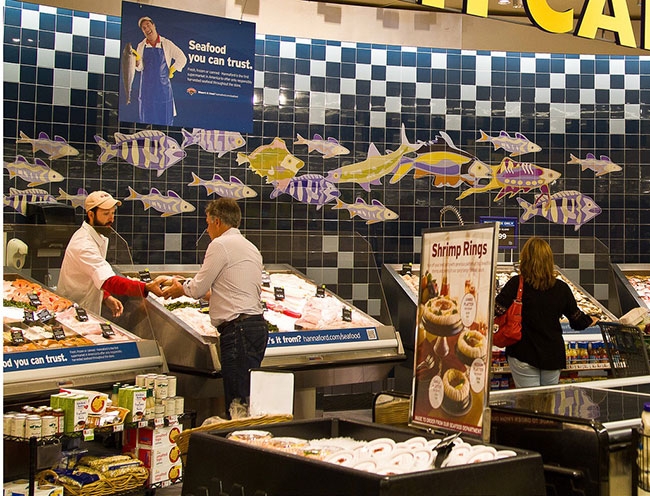
Report highlight consumer seafood preference
May 28, 2019
By Ruby Gonzelez
Consumers in the US Atlantic States prefer seafood that are wild-caught but they will purchase more farm-raised seafood if it is readily available.
 Aquaculture operations can benefit by growing and delivering what consumers are willing to purchase in any given location Consumers in the US Atlantic States prefer seafood
Aquaculture operations can benefit by growing and delivering what consumers are willing to purchase in any given location Consumers in the US Atlantic States prefer seafoodThis was the conclusion of the report, “Consumer Attitudes and Preferences about Farm-Raised Shellfish, Finfish, and Sea Vegetables in the Atlantic Coast States.”
Consumers are also willing to pay premium prices for specific product categories, the report said. “For example, participants indicated a willingness to spend 44 percent more on fresh seafood, 34 percent more on locally produced items, and 27 percent more on certified organic seafood.”
The report highlights the results of the Atlantic States Consumer Seafood Survey, which focused on 16 varieties of seafood. It was conducted on all 14 Atlantic Coast states and was completed in 2018.
The report includes an overview of industry trends, information on consumer preferences for wild-caught and farmed seafood products, and a summary of market demand projections for different species and categories by location.
“These data are useful for understanding which areas seafood providers could focus on to grow sales channels and revenue streams,” said Atlantic Corporation, which prepared the report under an award from the National Oceanic and Atmospheric Administration.
“Both start-up and established aquaculture operations can benefit by growing and delivering what consumers are willing to purchase in any given location,” it said.
The most consumed species by respondents in 13 states were shrimp, flounder, lobster, crabs, scallops, Atlantic salmon, or Pacific/Alaskan salmon. The only state where shrimp was outranked as the most popular species was Maine, where lobster was the most popular.
Data showed that “the higher their income, the more likely people were aware of and knowledgeable about marine aquaculture operations.” Respondents cited chemical pollution as their “greatest concern” about marine aquaculture operations.
Advertisement
- Kuterra to harvest first crop in September following hiatus
- Canada creates new ‘aquaculture science’ committee





